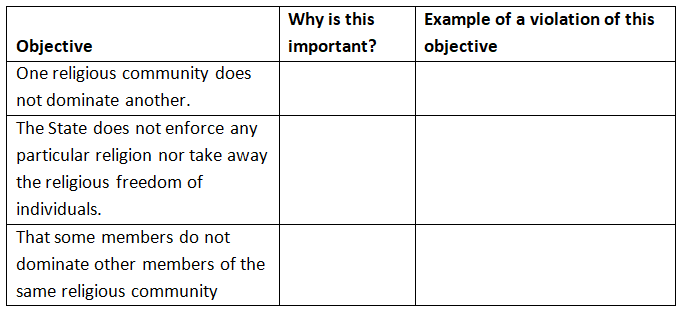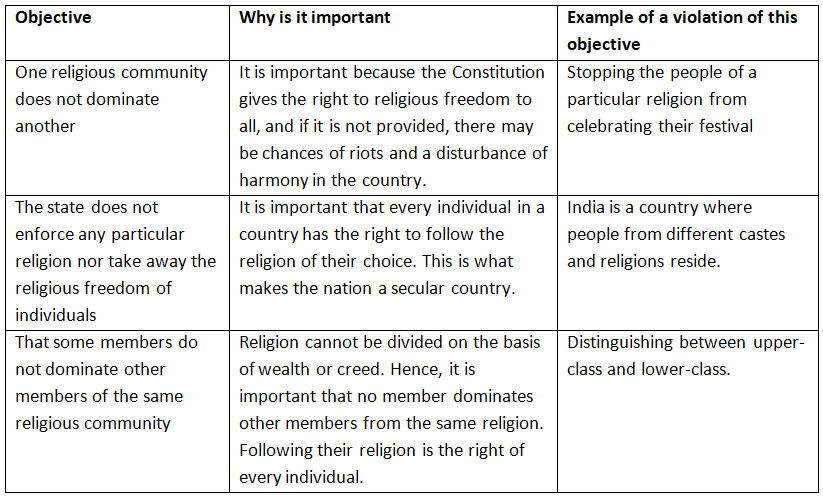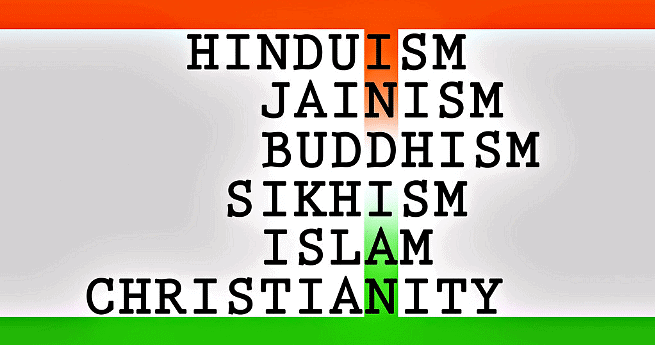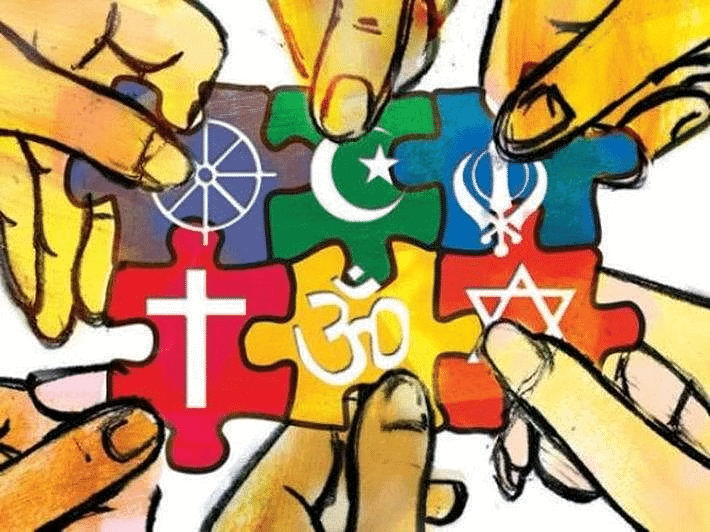NCERT Solutions for Class 8 Civics Chapter 2 - Understanding Secularism
Q1. List the different types of religious practice that you find in your neighbourhood. This could be different forms of prayer, worship of different gods, sacred sites, different kinds of religious music and singing etc. Does this indicate freedom of religious practice?
Ans: The different types of religious practices that we can see in our neighbourhood are as follows:
- A Sikh person worships in Gurudwara to Guru Nanak using Guru Granth Sahib
- A Muslim worships in a mosque, and their sacred book is the Quran.
- A Christian worships Jesus Christ in a Church, and their religious book is the Holy Bible.
- A Hindu worships in a Temple to the idols of Gods and Goddess.
This shows that the people in India have the freedom to practice the religion of their choice and yet live together in peace and harmony.
 Person offering Namaz
Person offering Namaz
 Havan
Havan
Q2. Will the government intervene if some religious group says that their religion allows them to practise infanticide? Give reasons for your answer.
Ans: The government in a democratic nation would intervene if a religious group claims that their beliefs permit infanticide. This is because such practices violate the Fundamental Right to Life and involve the killing of an innocent person, which is unacceptable.
Government intervention can take different forms:
- Pressure to stop harmful practices.
- Support for religious practices that do not harm others.
For example, Sikhs in Delhi are allowed to ride without helmets on two-wheelers due to their religious requirement to wear a turban, which is a sacred tradition.
Q3. Complete the following table:
Ans:
Q4. Look up the annual calendar of holidays of your school. How many of them pertain to different religions? What does this indicate?
Ans: The annual calendar of our school marks holidays like Eid, which is celebrated by Muslims. Diwali, which is a Hindu festival, Christmas, which is celebrated by Christians, and Guru Nanak Jayanti which is a Sikh festival. This proves that India is a secular country and every individual has the right to religious freedom.
Q5. Find out some examples of different views within the same religion.
Ans: Some examples of different views within the same religion are as follows:
- Hindus worship different idols of Gods and Goddesses.
- Muslims are divided into Shia and Sunni
- Followers of Lord Mahavir are called Jains
- Buddhist followers are divided into Mahayana and Hinayana
Among Muslims, many people believe in the ‘Parda system’, whereas many do not approve of it & see it as interference in the freedom
Q6. The Indian State both keeps away from religion as well as intervenes in religion. This idea can be quite confusing. Discuss this once again in class using examples from the chapter as well as those that you might have come up with.
Ans: The Indian state keeps away from religion as well as doesn't intervene in religion in the following ways:
- The Indian State distances itself from religion and it is not ruled by a religious group & nor does it support any one religion.
- Equal respect is given to all religions. In order to prevent domination by one particular community, the state may interfere in the religion.

- The state may interfere in religion to ensure that all religions are treated equally.
- Sometimes, the State may have to intervene in the religion based on the ‘personal laws’ of the communities to ensure that laws relating to equal inheritance are protected.
Q7. This poster alongside highlights the need for 'Peace'. It says, “Peace is a never-ending process... It cannot ignore our differences or overlook our common interests.” Write in your own words what you think the above sentences are trying to convey. How does it relate to the need for religious tolerance?
This chapter had three drawings on religious tolerance made by students of your age. Design your own poster on religious tolerance for your peers.
Ans.

- ‘Peace is a never-ending process. It cannot ignore our differences or overlook our common interests.’ The above sentences say that for all the communities to stay together, it is very important that each religious community should respect the other, their interests & their religious practices.
- We should not feel bound by any law that we need to respect the other religion, whereas, we should work towards decreasing the differences among religious communities & work towards bringing peace into the society as a civilized society. Only then, we will be able to enjoy the co-existence of different religions in society.
|
87 videos|558 docs|53 tests
|
FAQs on NCERT Solutions for Class 8 Civics Chapter 2 - Understanding Secularism
| 1. Secularism kya hai aur iska maqsad kya hai? |  |
| 2. Bharat mein secularism kaise sthapit hua? |  |
| 3. Secularism ka samaj par kya prabhav padta hai? |  |
| 4. Secularism aur dharmik swatantrata mein kya sambandh hai? |  |
| 5. Bharat ke samvidhan mein secularism ka kya mahatva hai? |  |

















